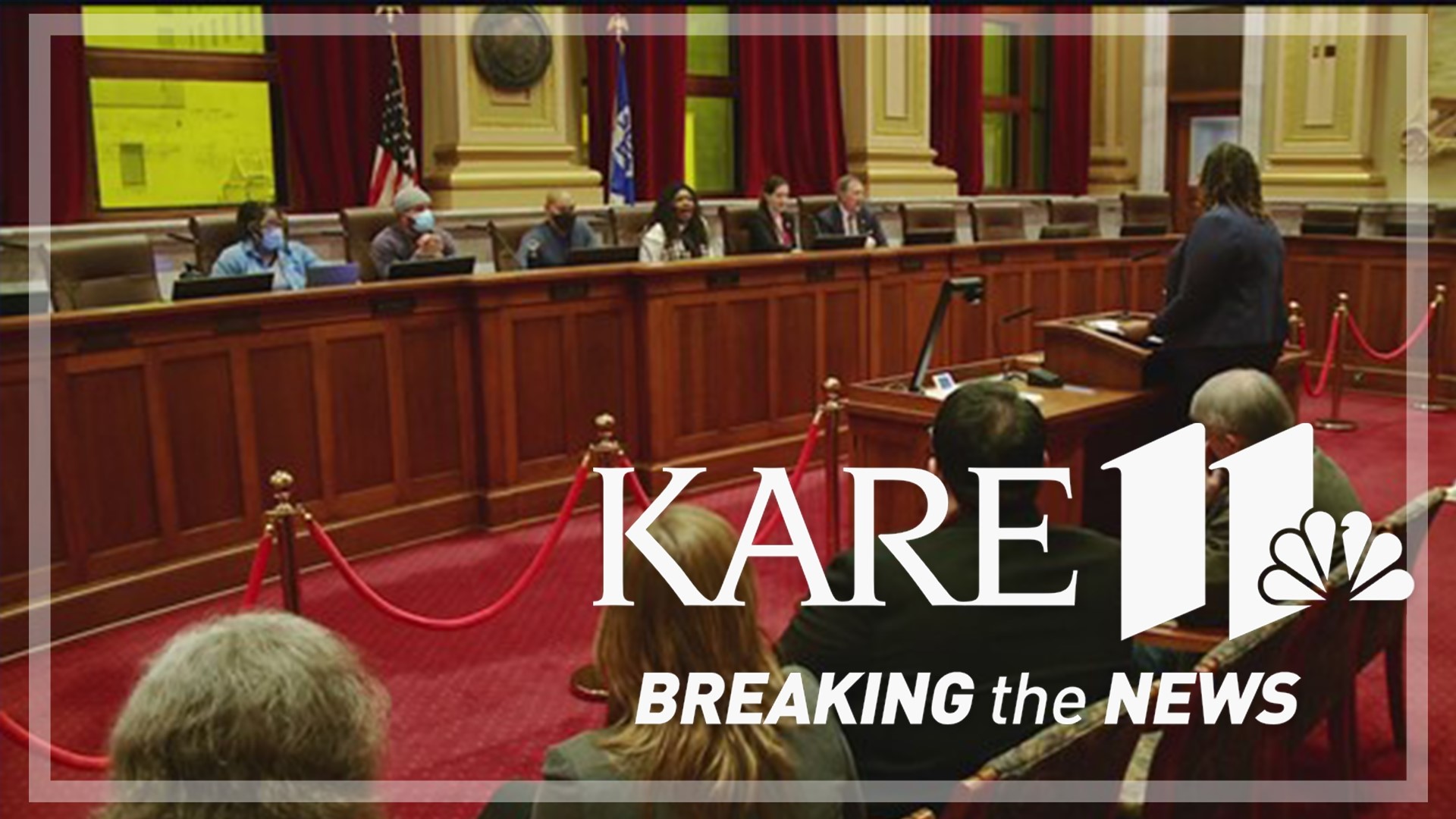MINNEAPOLIS — For the first time, we're learning more about the 15 people who will serve on a new board to oversee the Minneapolis Police Department.
The Minneapolis City Council created the Community Commission on Police Oversight (CCPO) last fall after other groups went defunct due to a sometimes tense relationship between the public and MPD over transparency.
The new commissioners are all civilians and had to meet several requirements. They'll be granted oversight of MPD practices, policies, and complaints against officers.
And the 160 people who applied for the one-year term were the most for any commission since 2010.
Wednesday's vote was first put forth in the Public Health and Safety Committee meeting and included remarks from the Department of Civil Rights Director Alberder Gillespie.
"We wanted to make sure everyone was a part of this process," said Gillsespie.
Of the new 15 commissioners on the CCPO, 13 of whom should be appointed by the whole council on April 27 and two others by the mayor. The new structure also includes smaller panels with three of those commissioners and two police officers that will review complaints against officers.
If the five-person panel recommends discipline against an officer to the police chief, the chief can send the case back to them for 15 days of "additional investigation." Otherwise, the chief has 30 days to act on the recommendation, but state law gives the ultimate decision-making power to MPD -- not the civilian review commission.
This is the third generation of police oversight in the city. The CCPO was established four months ago to streamline the work and after George Floyd's murder when a scathing report found the current system wasn't holding officers accountable.
The group was whittled down through an application and interview process, handpicked by each council member to represent each ward, followed by extensive training and background checks.
"What that says to me, or how I interpret that is, that people in the community are ready to be a part of change," said Gillespie.
"I think people, when they applied for this position, they were very much in tune to their responsibility and what this committee means to them and to the country," said Office of Police Conduct Review (OPCR) Director John Jefferson. "So all their insight and what they bring is actually shaping the city and shaping what we do."
Jefferson is new to Minnesota and was hired as the OPCR director last fall. He's a former FBI agent whose job it was to investigate complaints against other agents, now ensuring justice and equality for people here.
"It's not just about our community, it's about our nation and actually the world because I think right now, everyone is looking at Minneapolis to see what we do," said Jefferson. "And change is slow, we know it doesn't happen overnight, and if people are just patient and let this CCPO evolve, I think they'll be very surprised how well they will do and what the community will do as well."
Several activists and community groups have spoken out against the new structure saying it's not enough of a change and it lacks real authority.
For example, if the commission recommends discipline against an officer, state law ultimately gives decision-making power to the police chief.
Overall, experts have said the CCPO is a fairly typical police oversight board that mimics some of the 200 or so that exist already across the country.
Watch more Breaking The News:
Watch all of the latest stories from Breaking The News in our YouTube playlist:

